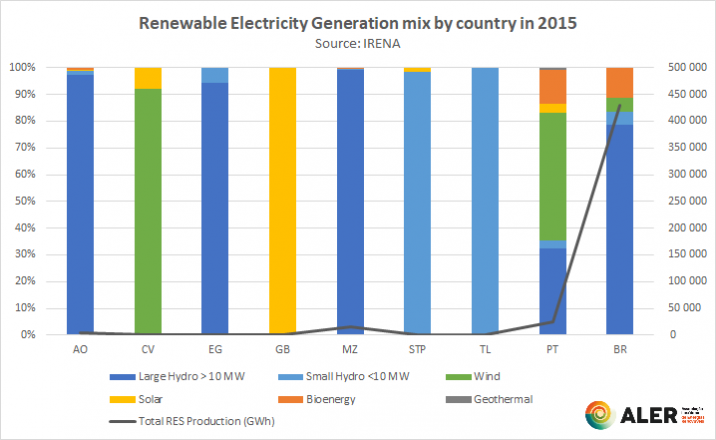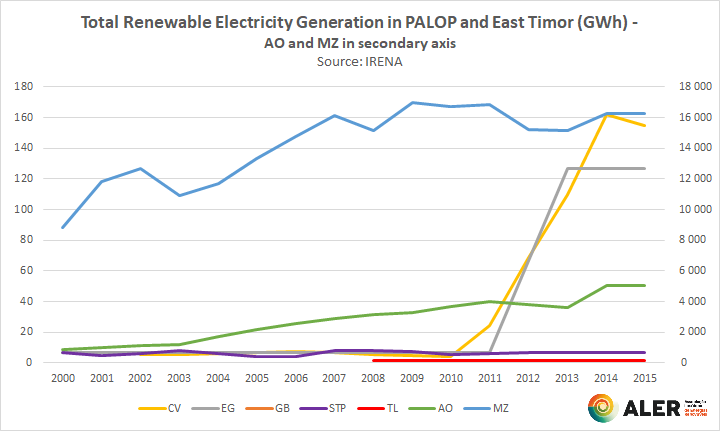The state of Renewable Energy and Energy Access in Portuguese-speaking countries: what do international statistics tell us?
Dear Readers,
One of ALER's main objectives has been the dissemination of relevant and up-to-date information on the state of renewable energies and energy access in Lusophone countries. This was the rationale behind the publication of our Mozambique national renewables status report, which we intend to replicate for the other ALER priority countries, namely the African Portuguese-speaking countries and East Timor.
In addition to the more detailed information of each country, we would also like to disseminate general and comparative statistics for all Portuguese-speaking countries. However, difficult access to complete and comparable statistical data for all countries, or in many cases, the absence of them, has been a constant challenge.
However, throughout the present year of 2017, several global reports have been published, which ALER has disseminated in our newsletters and are available for consultation in our database LERenováveis. The annual Global Renewables Status Reports published by REN21 were so far the main source of Information, but unfortunately they don’t cover all Portuguese-speaking countries. On the other hand, IRENA RESources online database has data for all countries, but only for electricity related indicators. It were this year’s reports by the SE4All Knowledge Hub, namely the Global Tracking Framework (GTF) and Readiness for Investment in Sustainable Energy (RISE), as well as the Atlas of Energy Africa Resources, that have made this complete comparative analysis finally possible.
You can download the analysis and the graphs here.
It is an interesting analysis and even if it doesn’t go into many details it allows to draw some relevant conclusions and to have an idea of the state of the sector in the Lusophone area. In the future we would like to be able to compare and complete these data with those existing at national level, which could not only provide a greater level of detail but more up-to-date data. However, the lack of official national statistics in many of these countries makes this work difficult. From the experience we had with the Mozambique report, we have verified that there is data available but only organized per company, namely the utility, and for the electricity sub-sector, which is not subsequently aggregated at national level. For this reason the only solution has been to use international data, despite the discrepancies between sources and some mismatches that we can identify but not correct.
Following these statements, a cross-cutting recommendation that we would like to make to all Portuguese-speaking African countries and Timor-Leste is the need to compile complete and up-to-date national data, define methodology for its aggregation, and publish energy national statistics (not only for electricity, and in the case of this sub-sector, include data from projects on- and off-grid). Only in this way will it be possible to truly understand national status, define goals and strategies, and be able to monitor their evolution. ALER is available to give all the necessary support to carry out this task.
We take this opportunity to thank the work of REN21 and SE4All Knowledge Hub, and we hope to be able to collaborate with these and other entities to consolidate data from Portuguese-speaking countries and ensure the availability of statistics for all of them. We will continue to work so that one day we can publish a regional renewable energy report for CPLP, just as REN21 has done for SADC, ECOWAS and other African regions.
I wish you a pleasant reading of the analysis and, if you have any suggestions, they are always welcome and can be sent to geral@aler-renovaveis.org.
Isabel Cancela de Abreu
ALER's Executive Director






















